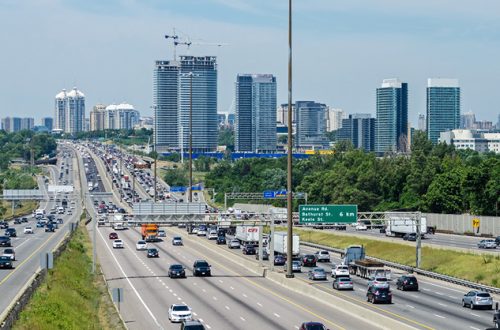
The Ontario Society of Professional Engineers (OSPE) is urgently appealing for widespread support in the implementation of a Clean Indoor Air Act in Ontario.
OSPE urges all stakeholders to support and advocate for the passage of a Clean Indoor Air Act in Ontario. This proactive step will safeguard public health, ensure a resilient future, and build a healthier and safer environment for all residents of our province.
In response to the ongoing challenges posed by the COVID-19 pandemic, OSPE has taken a leadership role by establishing an Indoor Air Quality (IAQ) Advisory Group. The group comprised of esteemed experts in air quality and ventilation, including engineers and medical professionals, has produced a series of guidance documents. OSPE continues to advocate at both the provincial and federal levels for regulations that prioritize the health and well-being of Canadians.
OSPE firmly believes that clean air is a fundamental right and a vital economic investment, essential to preventing future crises akin to those experienced during the pandemic. While diligent efforts are made to ensure the provision of clean water, with rigorous testing and maintenance protocols, a similar approach is lacking for Indoor Air Quality. The absence of continuous testing and regulation poses a significant threat to public health, necessitating immediate attention and intervention.
The recent challenges posed by the COVID-19 pandemic and devastating wildfire seasons emphasize the pivotal role that buildings play in either increasing the risk of disease and illness or providing sanctuaries for well-being. Good IAQ not only mitigates the spread of infectious diseases but also reduces the incidence of chronic conditions such as asthma, certain cancers, and complications of cardiovascular disease.
Furthermore, as extreme weather events associated with the climate crisis are likely to result in more time spent indoors, the need for buildings that prioritize the health and safety of their occupants, including IAQ, becomes even more critical.
OSPE draws attention to the Model Clean Indoor Air Act recently released by the Johns Hopkins Center for Health Security. This comprehensive model act outlines a method to ensure clean air for the public. The act includes:
- Creating a committee to advise on implementation,
- Developing an air testing plan for public spaces,
- Enforcing transparency and disclosure about indoor air quality in buildings,
- Providing guidance, testing requirements, incentives, and remedies to ensure the public is provided with clean air.
Clean air is not only a fundamental right but also a necessary economic investment. It can alleviate the disease burden, pandemic-proof our future, reduce children’s school absenteeism, and stand as one of the most significant public health interventions of our lifetime.
Why the current system fails
The building code which references ASHRAE 62.1 is a standard to provide acceptable indoor air quality for new construction. There are a few reasons that this isn’t sufficient.
- It is not guidance for existing buildings with poor indoor air quality
- ASHRAE guideline 42 indicates these airflow rates are often insufficient. ASHRAE guideline 42 as well as many healthy building guidelines recommend a 30% increase to outdoor airflow rates above 62.1
- It does not provide good IAQ, just acceptable IAQ and there is sufficient evidence that improved IAQ beyond 62.1 has significant health benefits
- It is not designed to mitigate transmission of airborne diseases
- Canada has no guideline for fine particulate matter, so 62.1 provides no protection for outdoor air pollution like wildfire smoke
- There is no clear guidance about the use of various technologies, including additive technologies or UV light
- There is no verification required or transparency provided to occupants
Given the number of shortcomings with current standards and their harmful impact on society during the COVID-19 pandemic, OSPE has created our IAQ guidelines to address these issues.
Increased outdoor airflow rates can have impacts on greenhouse gas emissions, which is why we do not advocate for anything beyond ASHRAE guidelines. We advocate for increased air cleaning which can also come through filtration or UV light which consumes electricity but has no inherent greenhouse gas emissions. We must have both health and sustainability as part of our building designs and cannot sacrifice either.
Show Your Support
Indoor air quality is an issue that affects every person and regulating it is vital to public health and safety. With the majority of people spending around 90 percent of their time indoors, OSPE encourages everyone to send a letter to their local MPP advocating for a Clean Indoor Air Act. Not only will it keep people safer in times of rampant infectious disease, as in COVID-19, but good indoor air quality is a pillar for all-around good health and well-being.




Leave a Comment